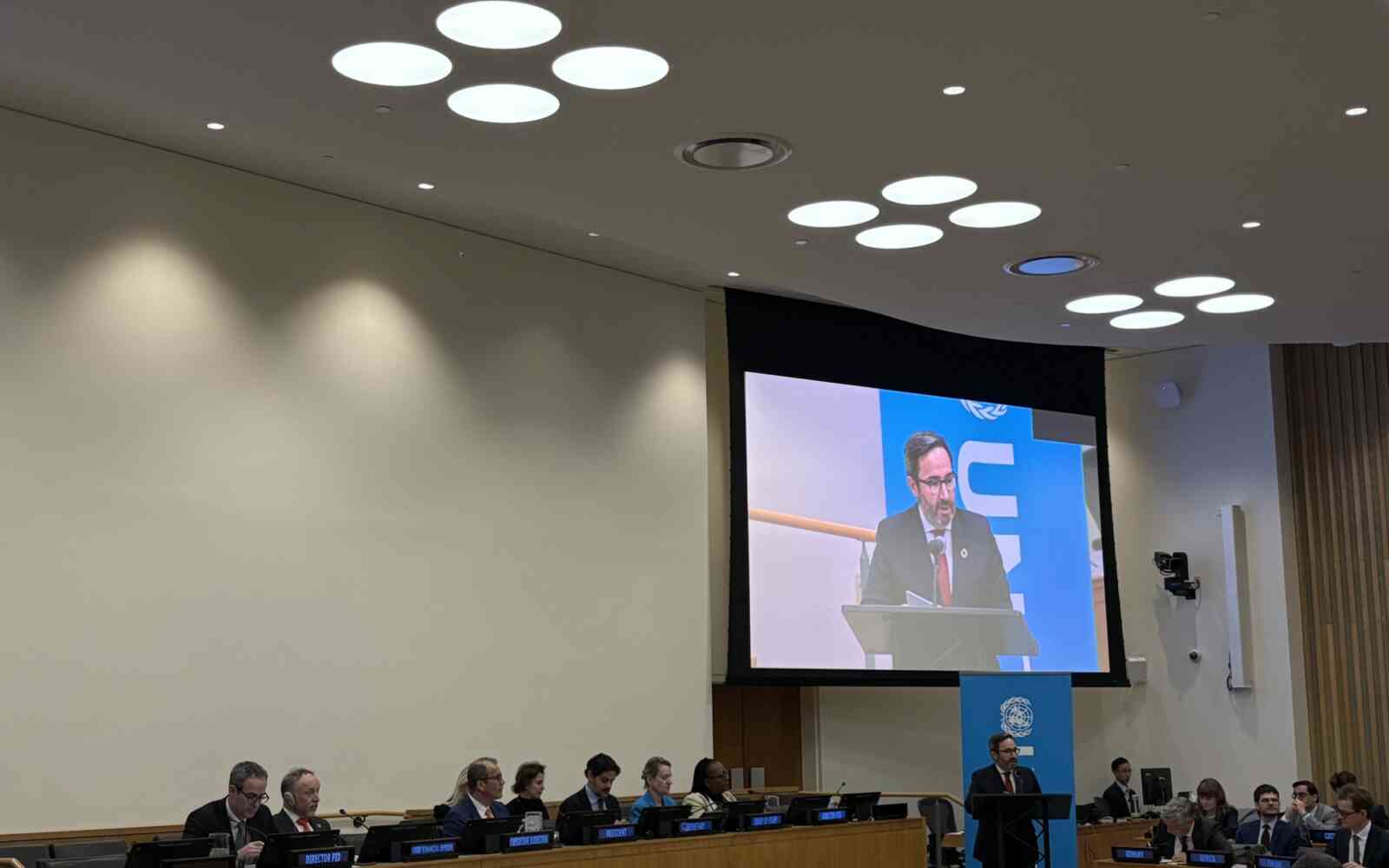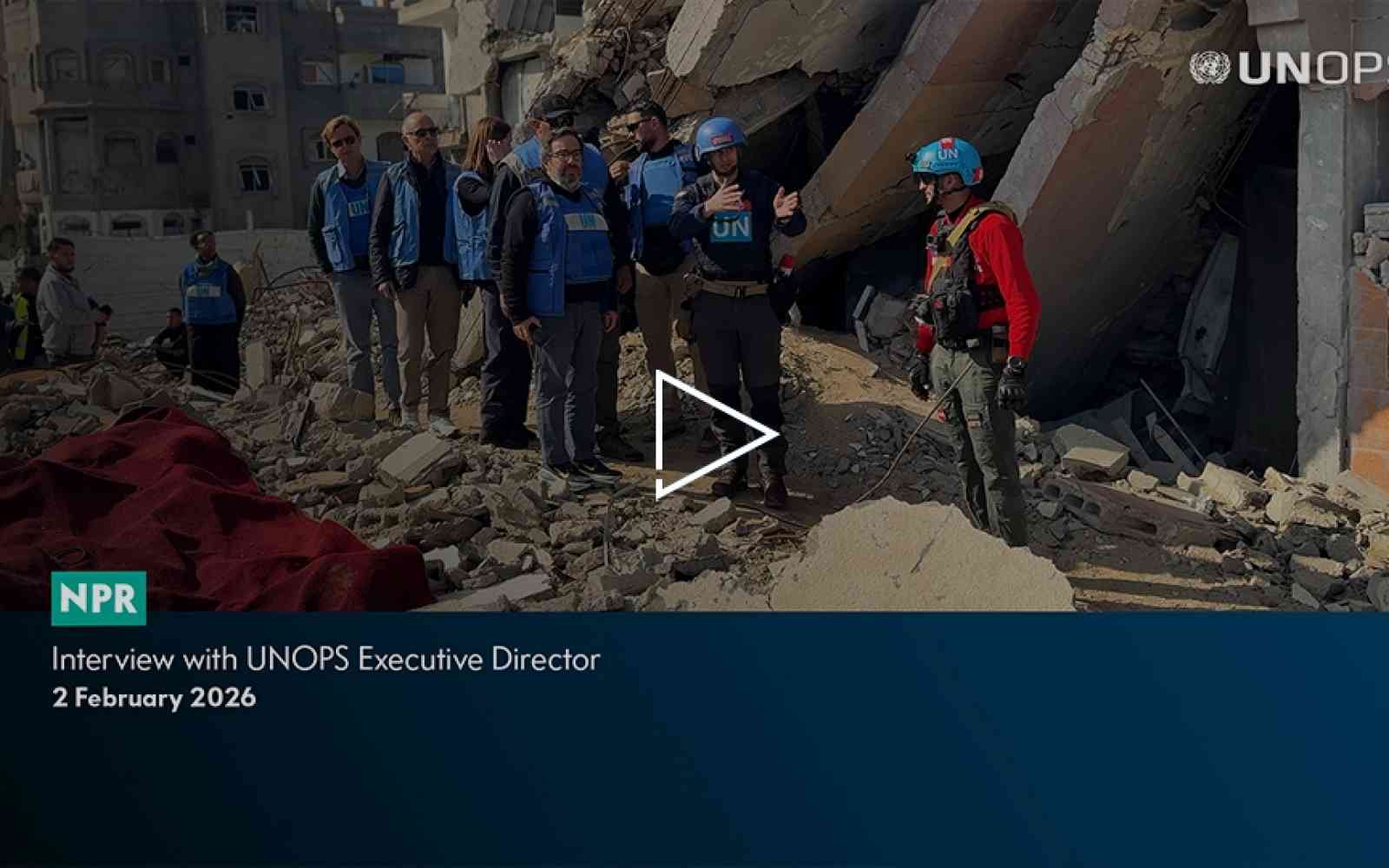The United Nations Office for Project Services (UNOPS)
Evento paralelo para el fomento de las inversiones en infraestructura de calidad
Opening remarks by Grete Faremo, Under Secretary General and Executive Director of UNOPS at the Promoting Quality Infrastructure Investment Side Event in New York, 19 September 2017
[Check against delivery]
Good morning,
On behalf of UNOPS, I would like to thank our partners and fellow hosts, from the European Commission and Japan's Ministry of Foreign Affairs for making this event possible today.
A special thank you to His Excellency Mr. Taro Kono and His Excellency Mr. Neven Mimica, for their opening remarks.
You have set the stage for insightful and relevant discussions by our panel members today.
In addition, thank you to our moderator, His Excellency Mr. Stefano Manservisi, who will be leading our panellists in the debate.
In four days, Hurricane Harvey brought 40 inches of rain to the mainland US, bringing unimaginable flooding and wreckage.
Following this, Hurricane Irma brought more widespread ruin across the Caribbean and the US.
Many Heads of State from the region were unable to join us at this year's UN General Assembly.
The state of their countries following this destruction demanded their presence at home.
In times like these, we are starkly reminded of the shortfalls in infrastructure investment around the world. The importance of quality infrastructure to withstand such threats and protect people is not to be underestimated.
Annually, some $3 trillion in infrastructure investment are required to achieve the demands of growing populations around the world, and prepare for uncertain futures.
At UNOPS, we champion and promote evidence-based infrastructure.
We know few governments have the data to understand what the future will bring, on the scale of towns, cities and even nations.
So, we bring our expertise to the table.
As a project organization with a mandate in infrastructure, we build schools, roads, hospitals, and waste and water management facilities, all around the world.
And we operate in some of the most challenging places on earth.
Let me provide a few examples:
In South Sudan, we are building landing strips and feeder roads under very difficult conditions, to enable delivery of much-needed humanitarian aid, as well as helping people access shelter and refugee camps.
In Sri Lanka, we constructed resilient schools and fishing piers to protect both coastal and inland communities against the effects of climate change and seasonal changes.
This provides both a safe space for children to learn and a secure workplace for those people whose livelihoods depend on the sea.
San Salvador, El Salvador, is a city exposed to increasingly strong and frequent tropical storms and hurricanes.
Rivers in the city flood regularly, sometimes with devastating consequences for people living on the banks.
Some years back, a bridge was washed away with a bus full of people.
UNOPS rebuilt the bridge, but also enforced the banks, redesigned the gorge so that it now withstands future flash floods.
As I know you are all aware, today's humanitarian challenges, coupled with the growing effects of climate change, demand investment in quality, evidence-based infrastructure.
Destructive floods, droughts, storms and heatwaves will, one way or another, seriously affect the ten billion people that will inhabit our earth by the middle of the century.
Decisions taken today on building infrastructure could lock in carbon emissions for decades.
The choice to build a highway rather than a public transport system, for example, will have significant long-term consequences.
In unpredictable environments, with growing populations, climate change and emergencies, we need to be quicker, smarter and more effective.
We need to invest in quality infrastructure that works and lasts.
And above all, it has to make sense locally, for the people we serve.
These are the points that I would ask you all to bear in mind as we move forward to the debate. Thank you all once again for joining us today. I am very much looking forward to the discussion. Thank you.











